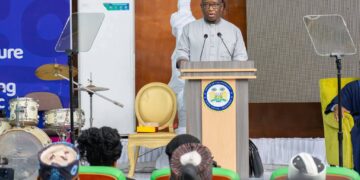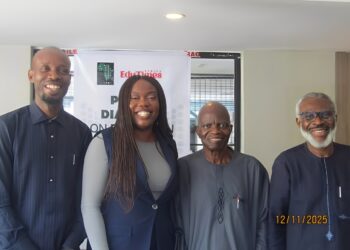
INTRODUCTION
This article thoroughly examines the degradation of the teaching profession in educational institutions, specifically at the primary and secondary levels in Nigeria. It attributes the decline in education quality to the inadequate enforcement of teaching prerequisites. Additionally, it offers strategic and detailed suggestions for regularizing the profession to enhance the education system and ultimately contribute to a better country.
The Teachers Registration Council of Nigeria (TRCN) was established as an agency of the Federal Ministry of Education in 1993, with the responsibility of regulating and controlling the teaching profession. According to the TRCN (2005), the agitation of professional teachers and other stakeholders led to the enactment of Act 31 that established the regulatory body. As stipulated in the teachers’ handbook published by the council, its mission is to promote excellence through registration and licensing of teachers to achieve professionalism through training programmes, supervision, and other initiatives at all levels of the education system. In its vision statement, it also expressed the interest in aligning teacher quality, discipline and dignity with global standards through the regulation of the sector.
It is crucial to emphasize that the teaching profession has been undermined across the country by the appointment of unqualified individuals whose primary aim is to earn salaries and allowances. To support this claim, The Cable (2023) reports that the registrar of the council, Josiah Ajiboye, stated that 70% of private school teachers in the South west are not qualified, despite the assumed high standard of education in the region. Many graduates suddenly develop an interest in teaching due to the high rate of unemployment, without having the passion or expertise required for the job. In order to maximize profits, some private school owners prefer to engage the service of corps members who have no background in education for their establishments.
The National Youth Service Commission (NYSC) also continues to deploy graduates from various departments across all universities to schools, ultimately entrusting the future of learners into their hands. Why aren’t Education graduates assigned to teaching hospitals and clinics for their primary assignments? Why are they excluded from courts of law, pharmacies, and other professional organizations? Why has the system been subjected to ridicule and complete resistance to growth? How can it progress beyond the quality of its teachers, as envisioned by the Federal government? Do governments at all levels forget that the future of every nation relies heavily on their commitment to education?
Despite the threats issued by the council to eliminate fake professionals, there has not been any significant progress in fulfilling its mandate to completely overhaul the system. The council, as reported by the Whistle Newspaper, has also promised that unqualified teachers will face challenges in 2018. Yakubu (2020) also mentioned the warning given by the Chief Executive Officer, regarding the crackdown on fake teachers. To emphasize the issue, the Guardian News (2021) reported that the council stated that 50% of Nigerian teachers should not be in the classrooms. It is nearly impossible to achieve impressive results in the fight against quackery for the standardization of the profession if the council does not have the right to prosecute defaulters, including schools that employ them. It should be empowered by the Federal Government to fully carry out its mandate.
Teachers’ remuneration should be taken seriously to ensure the attractiveness of the profession. Prospective teachers in universities should also receive proper training to effectively discharge their duties after graduation and during their teaching practices. All stakeholders must contribute immensely towards improving the system with the necessary steps being taken without delay.
Appointments to political offices in the Ministries of Education should be based on competence, not on connections or political favours. It is shocking to see lawyers, doctors, and engineers appointed as commissioners of education in several states, which can have a negative impact. How can someone whose experience is in healthcare perform well in the education system without prior training? These issues need to be urgently addressed.
Additionally, it is recommended that the National Youth Service Corps (NYSC) should stop posting any corps member without an undergraduate degree in Education to schools. They should instead be posted to organizations based on their areas of interest. Graduates who are currently teaching in schools should be required to pursue a Postgraduate Diploma in Education (PGDE). Teaching with only a first degree in an unrelated discipline should be prohibited to ensure full compliance.
REFERENCES
Federal Ministry of Education (2015). Teachers Hand book Revised. Teacher Registration Council of Nigeria.
The Nation (2023). TRCN says 70% of private school teachers are unqualified.
The Guardian Nigeria News. 50% of Nigerian teachers are not qualified, says TRCN.
__________________________ Samuel Tolulope Alimi is the founder and lead scholar at English TV, an online platform dedicated to teaching the English language on various social media platforms. He earned a BA (Ed) from the prestigious Olabisi Onabanjo University, Ogun State, where he majored in English and Education. As a Grammar Columnist at Peoples Daily newspaper, one of the foremost and trusted national newspapers, he writes about Nigerian English on Page 23 of every Saturday's publication, with his column titled "Common Errors in English with Samuel Alimi." His writings have attracted considerable readership across several states, with over 30 detailed articles published. Samuel is a goal-oriented ambassador of Scholarship IQ, promoting its mission to build the world's largest African student directory in two local governments in Nasarawa State, Nigeria. He has also gained hands-on experience in ghostwriting autobiographies, community service, and research through his internship at SO41 Educational Consultancy, Ogun State. LinkedIn: Samuel Tolulope Alimi samueltolulopealimi@gmail.com


















































































 EduTimes Africa, a product of Education Times Africa, is a magazine publication that aims to lend its support to close the yawning gap in Africa's educational development.
EduTimes Africa, a product of Education Times Africa, is a magazine publication that aims to lend its support to close the yawning gap in Africa's educational development.
